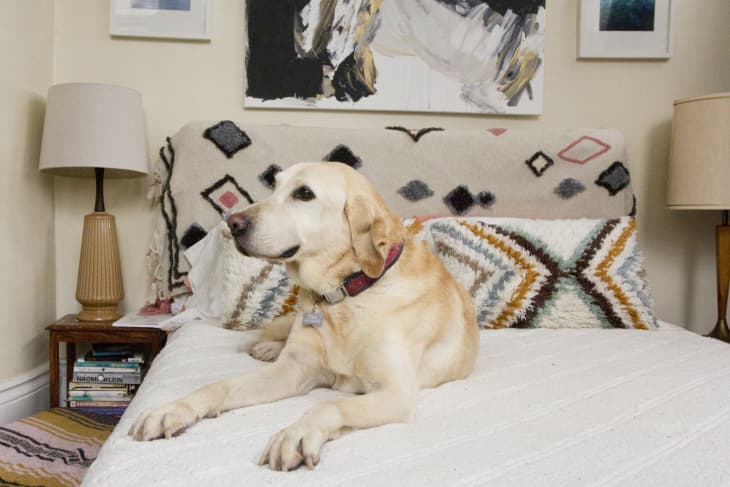Your Dog’s Personality Changes When They Hit “Middle Age”—Here’s What to Expect

Pet owners know that most dogs naturally grow out of their “puppy energy” as they age out of the puppy stage, which means your dog will likely spend more time snoozing and less time playing as he or she gets older.
But one new study found that dogs actually experience a personality shift around their third birthday, which might be the reason they stop seeking novelty as they hit middle age. (Yes, it’s true, dogs can hit that “middle age” milestone as early as two, per Science magazine.)
In the study, published in Scientific Journals, researchers analyzed the personalities of 217 Border collies ranging in age from six months to 15 years, conducting various tests to determine if there were concrete changes in personality in the pooches over time. They found that “novelty seeking” decreased markedly after the age of 3, seemingly implying that dogs get a bit bored with life as they get to middle age and beyond.
The tests included free exploration of a room, allowing the dogs to roam freely and check out different objects on the floor; obedience tricks like greeting and basic commands; separation and greeting after separation in which the dogs were left alone for one minute and then rejoined by their humans; the t-shirt test in which each dog was placed in a t-shirt for one minute to see their reaction; tennis ball play; and more.
They found that dogs generally reacted less to stimuli once they hit that middle age point, becoming less easily agitated by disturbances (or less likely to show it) or motivated by rewards over the course of the four-year period of testing. Still, given the small sample size and testing of only one breed, we reached out to the pros to find out what this news means for dog owners.
Colleen Demling-Riley, a dog behaviorist for Dogtopia, confirmed the findings. “There are several studies that suggest a personality change around three does take place,” she told Apartment Therapy. “In most situations, this shift is the pup changing from an exploratory age to day to day life; similar to a young adult moving from college and a first job to the day-to-day grind of adulthood.”
Still, Demling-Riley advises not to be alarmed by these findings, because each dog is so different and each pet parent is so different, especially as training naturally decreases when your adult dog “ceases to demonstrate ‘problem behaviors.’”
The study also mentioned that big life changes can lead to changes in your pooch’s personality, including moving homes, expanding families, traumas, and more. It is possible for your canine pal to be impacted by these changes the same way you are.
“We all cope with change differently. The same is true for dogs,” said Demling-Riley. “Some pups go through typical life changes with minimal stress while others have huge behavior shifts. If your pup is struggling with change, hire a certified professional trainer ASAP so they can teach you and your pup how to adjust to the ‘new normal.’”
As for how you can be sure your furry friend is still enjoying their days, Demling-Riley notes that “variety is the spice of life,” especially when it comes to older pups. “Give them puzzle toys, start a new canine sport, and/or send them to doggy daycare. This enrichment and exposure to novel activities will keep your pup engaged and active while they age.”
It’s true: a walk in a new location, or a visit to doggy daycare to see some pals, or the occasional new toy (like a puzzle toy or treat dispensing toy) can ensure your adult dog still feels the love and hopefully the excitement from some new stimuli, even if their puppy days are long behind them.
And these changes are nothing to be concerned about, as Demling-Riley pointed out. “Unless your dog is showing an increase in aggression, anxiety, or fear, then just accept them for who they are and embrace their changing interests and needs.”